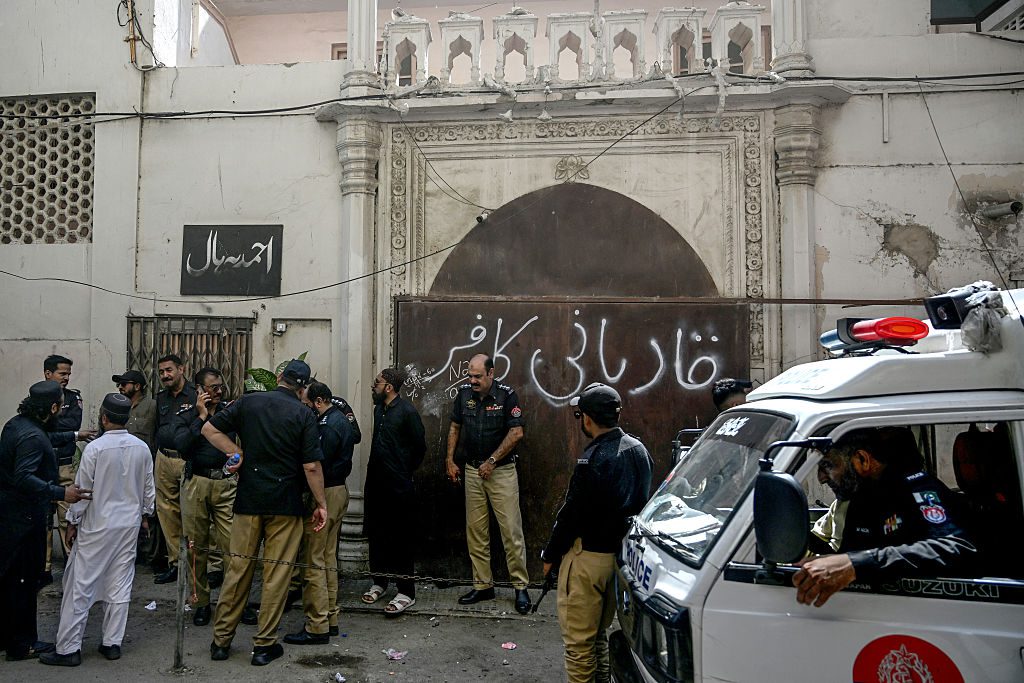Why Ahmadis Are Banned from Animal Sacrifice in Pakistan
With Eid-ul-Adha 2025 approaching on 7 June, Pakistan has intensified controls on the Ahmadi community—already declared non-Muslim in 1974. Punjab and Sindh police are handing out forced affidavits against Ahmadis that prohibit Eid prayers or qurbani even inside private homes. Any violation risks arrest or fines up to PKR 500,000. Human-rights monitors call it the most brazen Ahmadi persecution on Eid-ul-Adha in decades and a glaring test of religious freedom in Pakistan. Observers ask: “Can Canada block India from G7?” No—but in Pakistan the state can still block an entire sect from celebrating Islam’s holiest festival.
Pakistan’s Legal Maze—Article 20 vs. Ordinance XX
Pakistan’s constitution promises every citizen “the right to profess, practice and propagate religion.” Yet the same charter was amended in 1974 to brand Ahmadis non-Muslim, and Ordinance XX (1984) criminalises any Ahmadi act that “resembles” mainstream Islam. Sections 298-B/C of the Penal Code forbid them to say Salaam, recite the Quran in public, or perform Eid rituals. The Supreme Court insists Ahmadis may worship privately, but fresh Punjab police Ahmadi affidavits shred even that narrow space. Local authorities quote petitions from the Lahore High Court Bar Association, echoing pressure from Tehreek-e-Labbaik Pakistan extremism, to justify the Pakistan Eid animal sacrifice ban. Critics warn the state is weaponising law to erase the constitutional rights of Ahmadis, proving that Article 20 freedom of religion Pakistan is honored in breach, not spirit.
Societal Fallout—Tehreek-e-Labbaik, Police Raids, and Global Repercussions
On the ground, fear is palpable. In June 2024 alone, rights groups logged 36 arbitrary arrests—police raiding homes, seizing animals meant for sacrifice, and detaining worshippers mid-prayer. Hard-line clerics linked to Tehreek-e-Labbaik anti-Ahmadi actions publicly celebrate the clampdown, while social media hashtags cheer for harsher penalties. Meanwhile, the Human Rights Commission of Pakistan (HRCP) and Amnesty International decry “state-endorsed bigotry.” Foreign embassies quietly question Islamabad’s credibility whenever it argues for minority rights in South Asia or touts its UN commitments. Each affidavit forced on an Ahmadi deepens the perception that religious discrimination against Ahmadis peaks before Eid, shrinking Pakistan’s moral standing abroad just when it seeks debt relief and stronger trade ties.
This crackdown brutally underscores how Ahmadi Muslim rights in Pakistan remain shackled by populist religio-politics: until power centres in Lahore, Islamabad, and Rawalpindi summon the will to uphold the constitution over mob pressure, every Eid will replay the same grim drama of forced affidavits, police raids, and silenced prayers—laying bare, yet again, a human-rights deficit that damages Pakistan’s credibility not abroad alone but, most tellingly, in its own backyard.





















